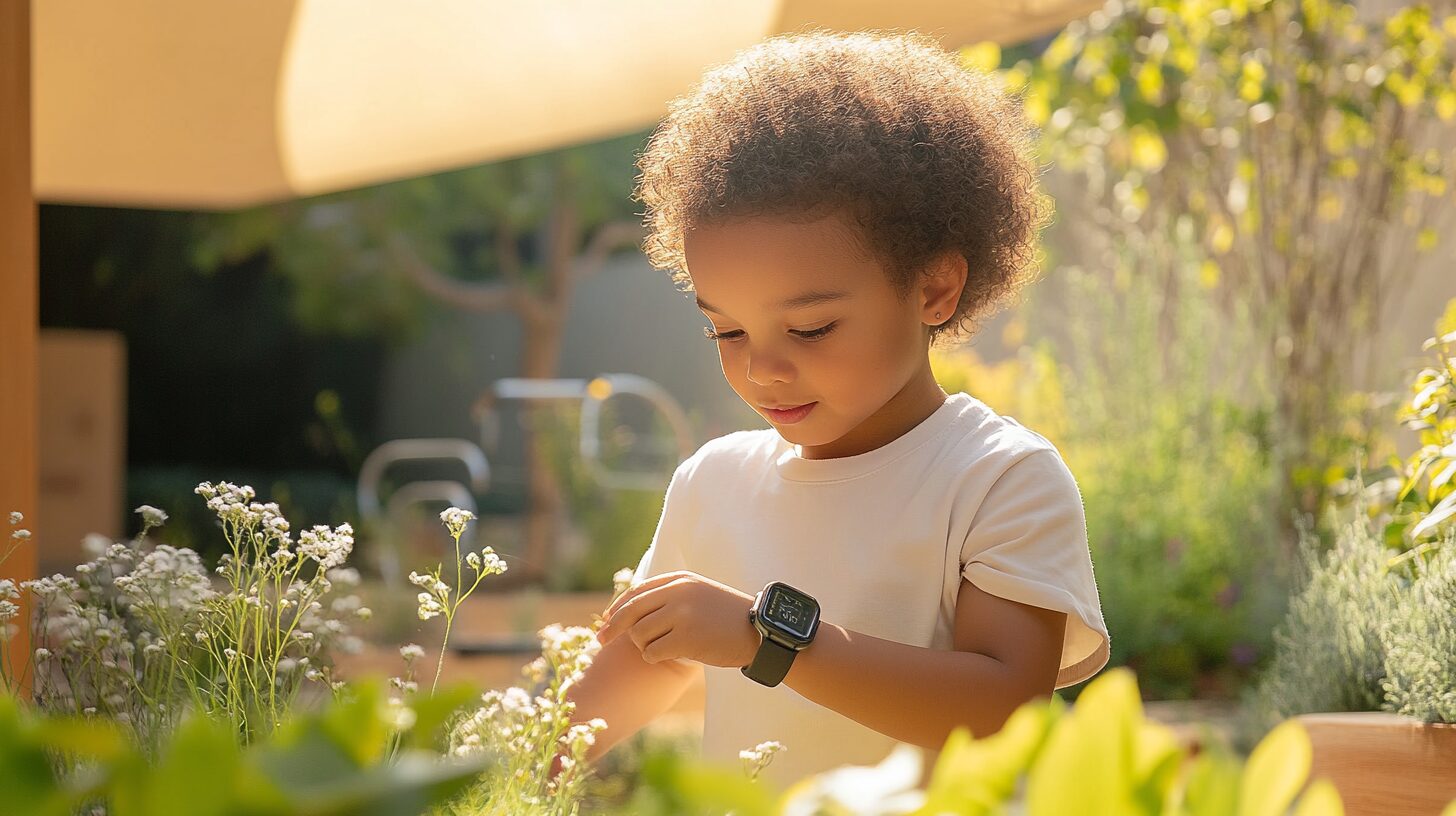Introduction to Dementia and Alzheimer’s Disease
How GPS Devices Support Dementia Patients? Dementia is a clinical condition that primarily affects the elderly, characterized by memory loss, cognitive impairment, and behavioral issues. The World Health Organization (WHO) estimates that 50 million people worldwide are diagnosed with dementia, with 10 million new cases noted yearly. Among these conditions, Alzheimer’s disease accounts for 60-80% of patients. This disease gradually destroys cognitive functioning, memory, and the ability to perform basic tasks.
Alzheimer’s disease is the leading cause of dementia in older people. It is a progressive brain disorder that damages and eventually destroys brain cells, leading to a loss of memory, thinking skills, and the ability to carry out simple tasks. As Alzheimer’s progresses, patients experience confusion, disorientation, mood and behavior changes, deepening trouble with speaking, swallowing, and walking. Ultimately, the disease is fatal.
It’s crucial to understand these medical disorders before we delve into how Global Positioning System (GPS) technologies can assist patients suffering from them. Dementia has a significant impact not just on the person but their loved ones as well. Caregiving for someone with dementia can be exceptionally demanding, both physically and emotionally. Assistive technologies like GPS trackers aim to ease this burden.
The Role of GPS Trackers in Dementia Care
Frequently occurring symptoms of Alzheimer’s disease include wandering and pacing. Patients lose their sense of direction even in familiar surroundings. They tend to forget how they got to a particular location or how to return home [^2^].
Wandering is one of the most dangerous and disruptive behaviors associated with Alzheimer’s disease and other dementias. More than 60% of patients with Alzheimer’s will wander at some point, putting themselves at serious risk of injury or even death. Wandering often increases as the disease progresses, making it more difficult for caregivers to supervise their loved one.
This is where GPS tracking tools come into play. Compact trackers connect to software solutions that assist family members and caregivers in monitoring the patient’s location in real-time. Features like geofencing alerts if a patient wanders beyond a set geographic area. This helps mitigate risks associated with wandering while still allowing some independence.
Understanding the Benefits of GPS Devices for Alzheimer’s Patients
GPS devices provide continuous tracking of patients through innovative features such as prompt alerts and notifications, geofencing, precise real-time location tracking [^3^], etc. This makes them an ideal tool for assisting people with dementia.
Specific benefits include:
- Increased Safety: GPS trackers allow caregivers to quickly locate patients if they wander off and become lost. Features like fall detection can also notify caregivers if a patient has fallen so they can provide rapid assistance.
- Greater Independence: Devices are small and discreet enough to allow patients a degree of autonomy while ensuring caregivers can still monitor their location. This promotes confidence and dignity.
- Peace of Mind: Caregivers no longer need to worry constantly about the whereabouts of their loved one. GPS tracking brings significant relief and reassurance.
- Pattern Tracking: Software can generate reports on daily/weekly patterns. This helps identify situations that trigger wandering episodes so preventative steps can be taken.
- Geofencing: Virtual boundaries can be set so alerts notify caregivers if a patient leaves a designated area. This is extremely useful for safety.
Essentially, GPS devices enable caregivers to care for loved ones with Alzheimer’s without severely restricting their freedom. With cautious yet close supervision, patients can still visit places they enjoy while ensuring their overall wellbeing.
Exploring Different Types of Assistive Technology for Dementia Patients
Apart from GPS trackers, various other forms of assistive technology are also available today that can prove useful for dementia patients and caregivers:
Medication Reminders: Automated pill dispensers manage medications and send alerts when it’s time for the patient to take them. This ensures doses aren’t missed.
Video Monitoring: Set up cameras at home to monitor patients remotely. Useful for identifying situations triggering wandering episodes.
Door Alarms: These sound an alarm if a patient tries leaving home unsupervised at odd hours like midnight. Helps prevent wandering incidents.
Item Locators: Tags that can be attached to commonly misplaced items like wallets, keys, remote controls, etc. to locate them easily via a remote. Reduces frustration.
Smart Home Devices:Control home appliances like lights, AC, etc. remotely to make the patient more comfortable. Also useful for home safety monitoring.
Personal Emergency Response Systems: Wearable devices that let patients call for emergency assistance with the press of a button if they face any trouble. Provides security.
Fall Sensors: Detect falls and automatically send alert notifications to caregivers for rapid assistance. Especially useful for elderly patients prone to falling.
With dementia patients, no single solution fits all needs. Getting the right combination of assistive technology tailored to the patient’s specific requirements is key to providing comprehensive care and support.
How GPS Devices Enhance Safety and Independence for Dementia Patients
GPS devices not only provide safety but also allow independence among dementia patients – a delicate balance that is difficult yet essential to achieve.
The real-time location tracking feature enables caregivers to keep precise track of a patient’s whereabouts when they step out independently. If the patient fails to return within a reasonable time, is moving irregularly, or ventures into unsafe areas, the caregiver can take appropriate action swiftly.
Geofencing sets a virtual boundary that triggers automatic alerts if patients leave or enter designated zones. For instance, if a dementia patient wanders beyond a 3-block radius of their home, the caregiver is immediately notified to bring them safely back. This prevents the patient from traveling too far alone.
Such features allow patients to enjoy daily walks, shopping trips, or visits to a familiar park or neighborhood – activities crucial for their emotional wellbeing. At the same time, caregivers have assurances that the patient remains secure. With cautious yet close supervision, GPS tracking devices offer the best of both worlds.
Consent and Ethical Considerations in Using GPS Trackers
While GPS trackers offer numerous benefits, it is crucial to involve the person with dementia in any decision to implement this technology. A GPS device is useless if the patient does not consent to wearing it [^2^]. Obtaining informed and willing consent is essential.
It is also important to evaluate whether the patient has the mental capability to fully understand and consent to using an assistive device that tracks their location. Consult their physician to accurately determine the stage and severity of dementia.
If cognitive impairment questions their ability to make well-informed decisions about their own care, consult a legal representative. A durable power of attorney for health care or a legal guardian should then provide consent on the patient’s behalf after careful consideration of benefits vs risks.
Using GPS devices without consent is unethical and can erode the trust between patient and caregiver. It may even constitute abuse in certain cases. However, with dementia progressively affecting mental capability, it is a complex issue with no straightforward answers. Ultimately the patient’s safety and dignity should be the top priority.
Practical Tips on Introducing GPS Devices to a Person with Dementia
Introducing new technology like a GPS tracker is challenging for someone living with progressive cognitive decline. A person in early-stage dementia may be overwhelmed trying to understand how the device works and suspicious of its need. Someone in later stages may simply be apathetic or frustrated.
Here are some practical tips to make the process smoother:
Explain Benefits Clearly: Emphasize how the device will give them more independence to go out safely rather than restrict them. Reassure privacy and that it is not “spying”.
Involve Them in Choosing: Give options on size, wearing as wristband vs pendant, color etc. This gives them some control.
Demo Device: Show how it works, especially fall detection alerts and geofence boundaries on a map. Address all concerns patiently.
Make It Routine: Help them remember to charge and routinely wear the device. This takes time but persistence pays. Offer reminders if needed.
Leverage Support System: Enlist the help of other family caregivers to explain need for device and ease concerns.
Be Positive: Project confidence and positivity about using this tool for their benefit. This motivates them to try.
With compassion and the right approach, most dementia patients can adapt to GPS trackers and the enhanced safety these provide.
Case Studies: Real-life Applications of GPS Tracking in Dementia Care
Seculife GPS Tracking offers a range of real-life applications in dementia care that can significantly enhance the safety and well-being of individuals living with dementia. Here are some specific scenarios where Seculife GPS Tracking can be invaluable:
- Safe Outdoor Activities: Dementia patients often experience wanderings, which can lead to dangerous situations if they get lost. Seculife GPS Tracking allows caregivers to monitor their location in real-time, enabling them to participate in outdoor activities such as walks in the park or visits to familiar places with peace of mind. If the individual wanders off, caregivers can quickly locate and bring them back safely.
- Emergency Response: In the event of an emergency, such as a medical issue or getting lost, Seculife GPS Tracking enables swift response by providing accurate location information. Caregivers, emergency services, or family members can easily locate the individual and provide necessary assistance, potentially saving precious time and ensuring their safety.
- Geofencing: Seculife GPS Tracking allows caregivers to set up virtual boundaries or “geofences” around safe areas, such as their home or neighborhood. If the individual with dementia crosses these boundaries, caregivers receive instant alerts, enabling them to intervene promptly and prevent any potential risks or dangers.
- Daily Routine Monitoring: Caregivers can use Seculife GPS Tracking to monitor the daily routines and activities of individuals with dementia. By tracking their movements and behavior patterns, caregivers can gain insights into their daily habits, identify any deviations or irregularities that may indicate distress or confusion, and provide appropriate support and intervention as needed.
- Medication Management: Seculife GPS Tracking can also assist with medication management for individuals with dementia. Caregivers can set up reminders for medication schedules and track whether the individual has taken their medication on time. In case of missed doses, caregivers can receive alerts and take necessary actions to ensure proper medication adherence.
- Family Reunification: If a person with dementia becomes lost or disoriented while out in the community, Seculife GPS Tracking facilitates quick and efficient reunification with their family or caregivers. By sharing real-time location information with authorities or family members, the individual can be located and safely returned home without undue delay or stress.
Overall, Seculife GPS Tracking offers a comprehensive solution for enhancing the safety, security, and quality of life of individuals with dementia, while also providing peace of mind to their caregivers and loved ones. By leveraging advanced technology, it enables proactive monitoring, rapid response to emergencies, and personalized care tailored to the unique needs of each individual.
Resources and Support Services for Caregivers and Families
Caring for a loved one with dementia can be emotionally and physically draining without adequate support. Along with assistive technology, it is vital that caregivers and family members leverage resources like:
Respite Care – Get temporary relief by placing your loved one in the care of a professional service for a few days or weeks. This gives you a break.
Adult Day Programs – These provide a safe, stimulating environment for dementia patients a few hours a day allowing caregivers free time to recharge.
Support Groups – Connect in-person or online to share experiences and advice with other dementia caregivers facing similar challenges [^1^].
Counseling – Manage stress levels more effectively through counseling sessions focused on developing coping strategies as a caregiver.
Education & Training – Attend seminars or workshops focused specifically on dementia caregiving hosted by bodies like Alzheimer’s WA. Being informed helps provide better care [^2^].
Leveraging such supportive services is vital for family members to avoid burnout in their caregiving role.
Conclusion: The Future of Assistive Technology in Dementia Care
While there is presently no cure for dementia, assistive technologies like GPS trackers and related software solutions are making a real positive difference to patients and caregivers today. They provide enhanced safety and independence to patients while giving caregivers much-needed peace of mind. Studies show incorporating assistive technology into dementia care plans improves quality of life for both patients and caregivers.
As wearable devices get more advanced and affordable, we can expect more innovative assistive solutions tailored to dementia patients in the future – fall detection sensors, medication reminders, object locators, etc. Voice-enabled smart home devices are also making assistance more accessible. Big data analytics combined with AI will provide deeper insights to optimize care.
While technology cannot substitute human care and companionship, it can certainly enhance support for both patients and caregivers facing the difficulties dementia brings. The future of assistive technology in dementia care does look promising.





